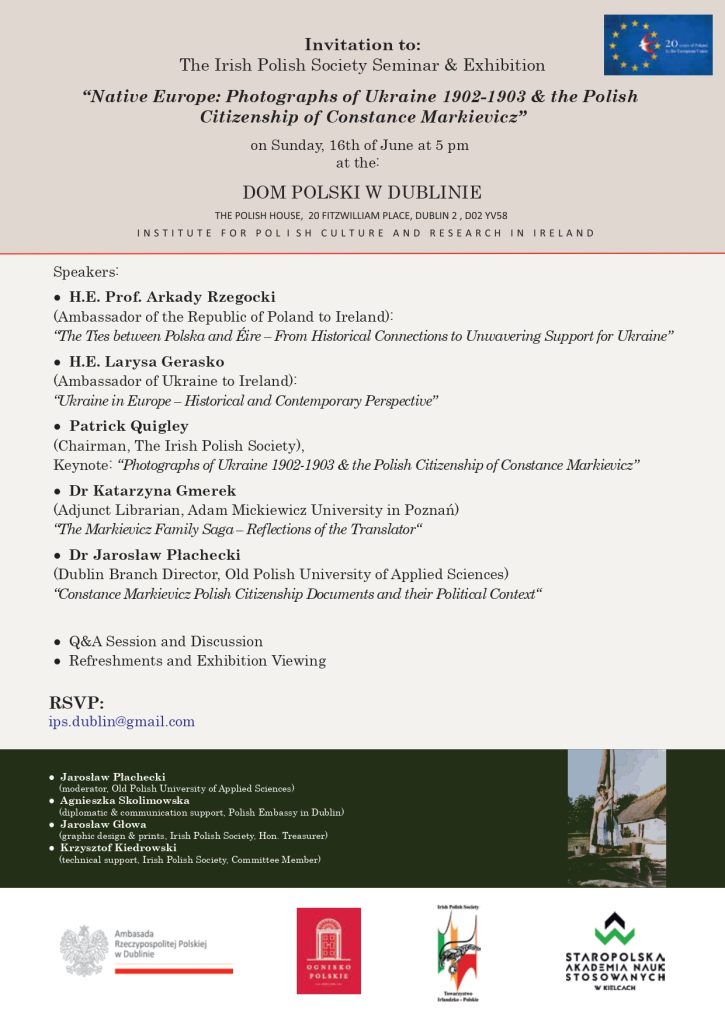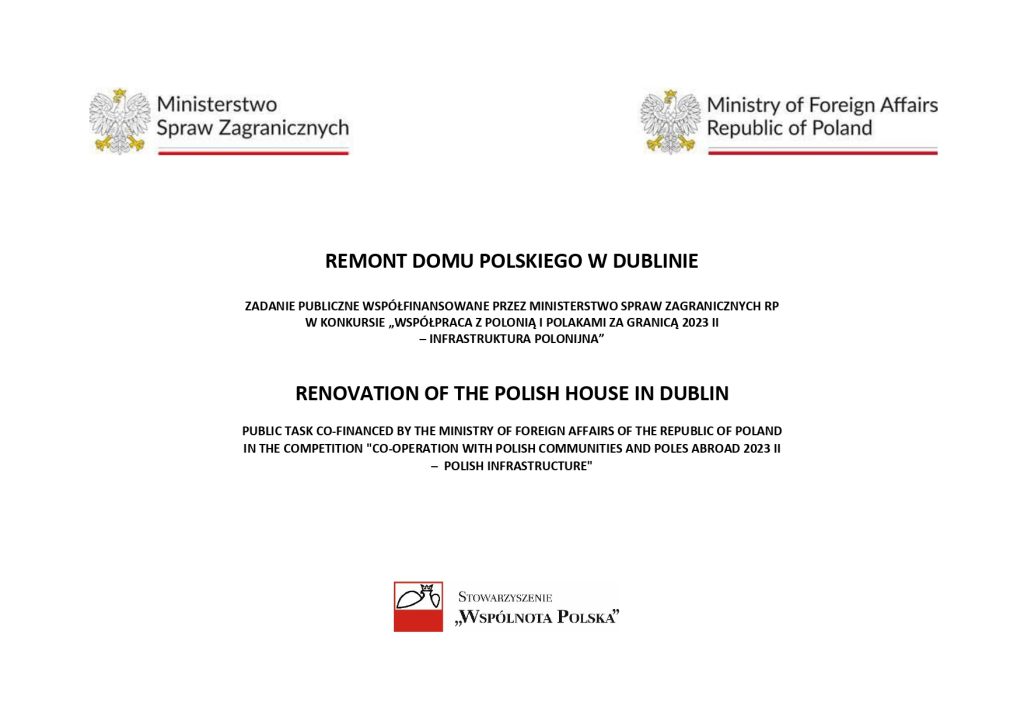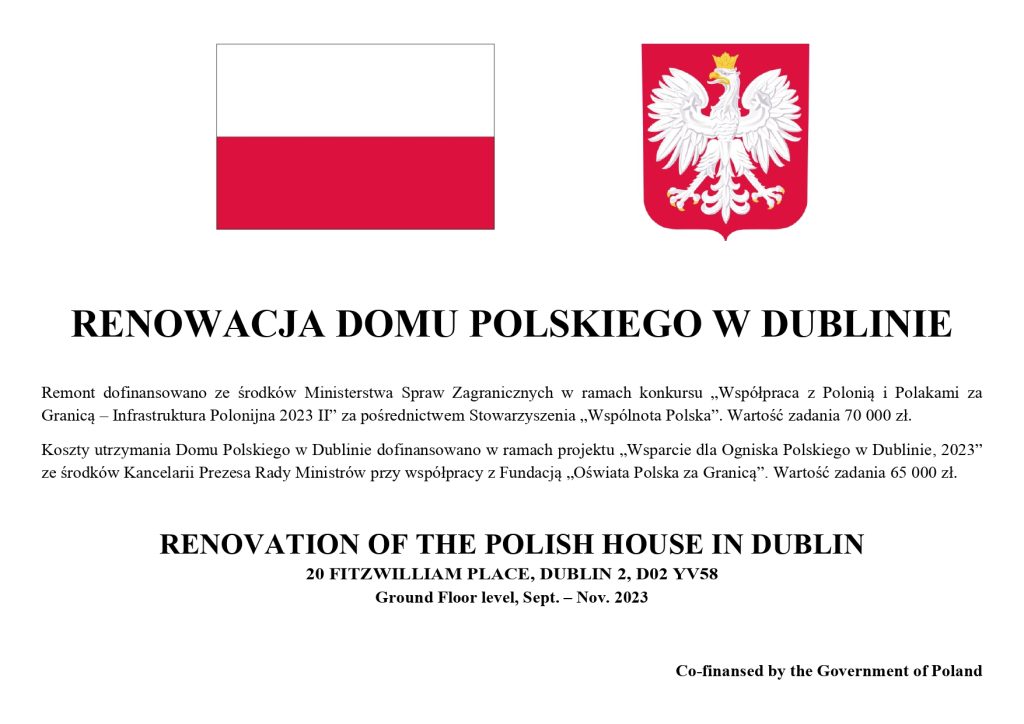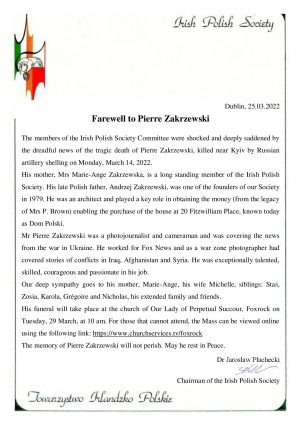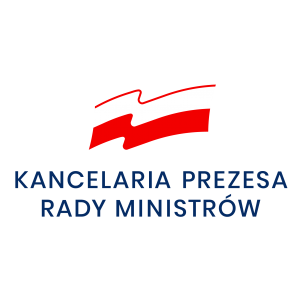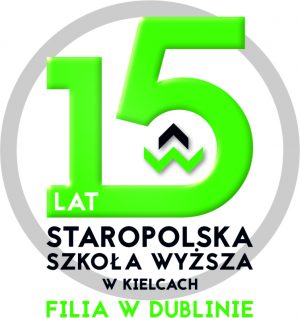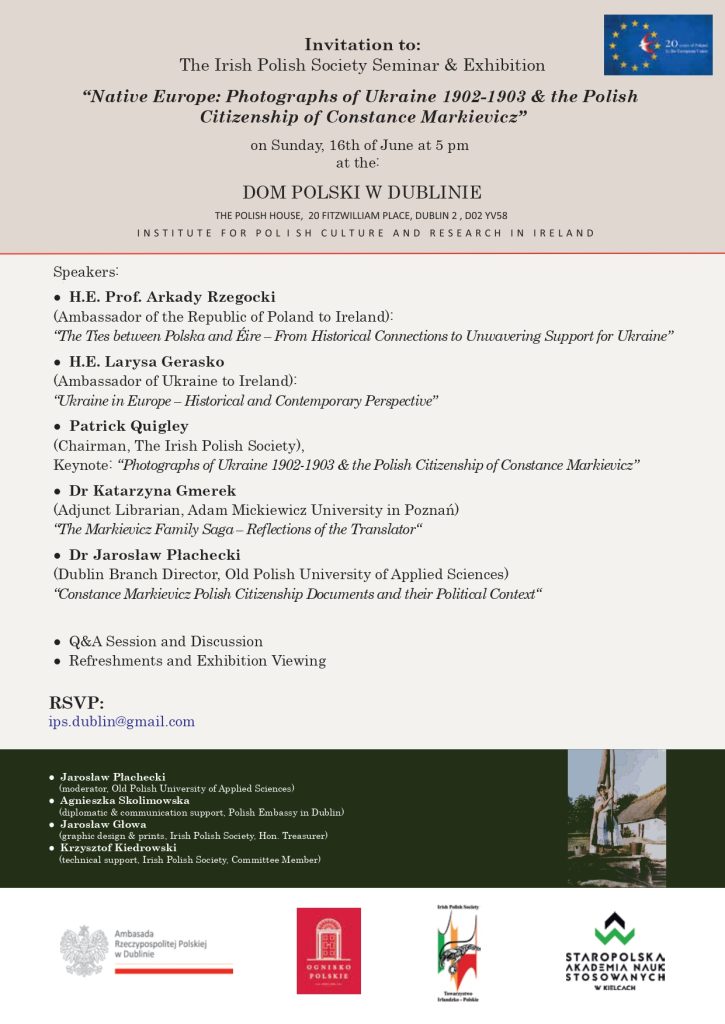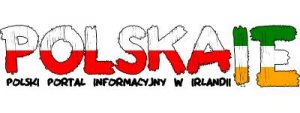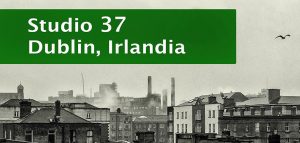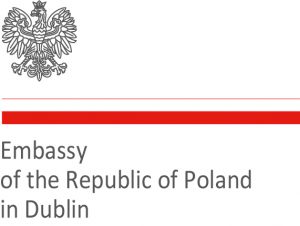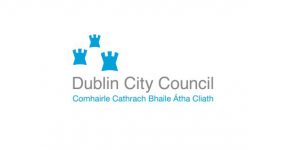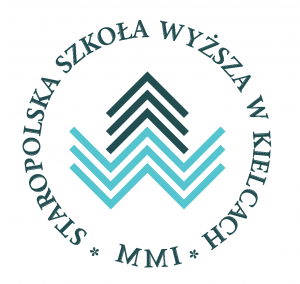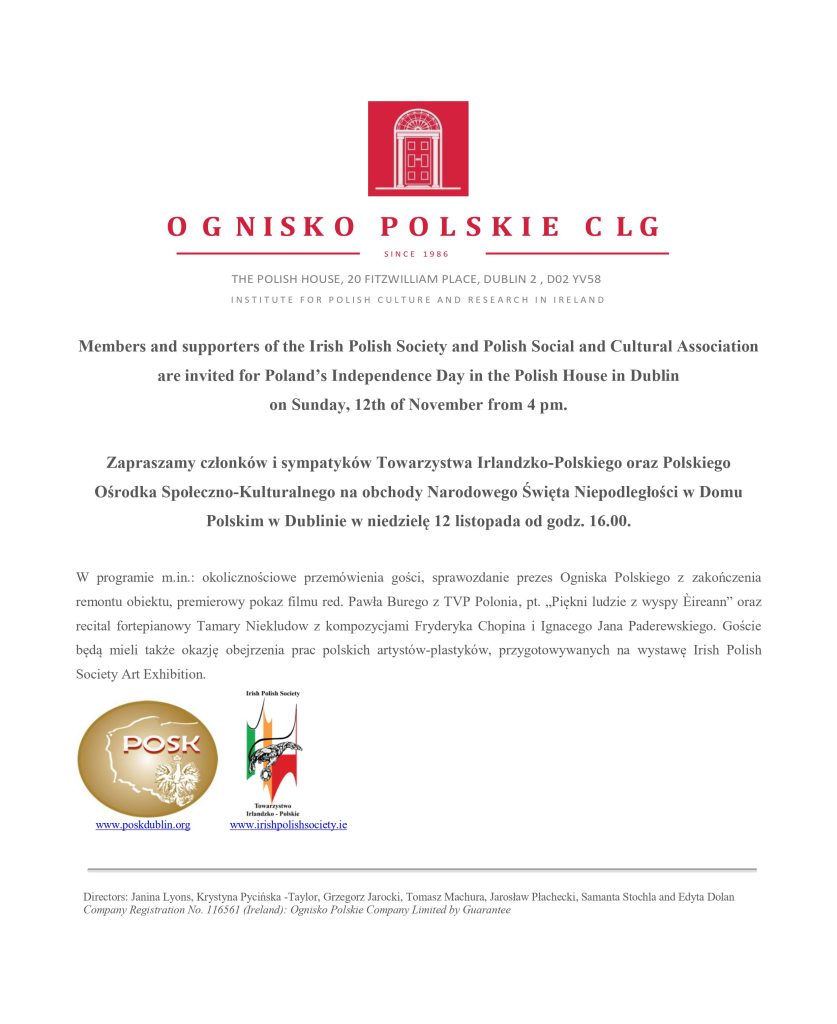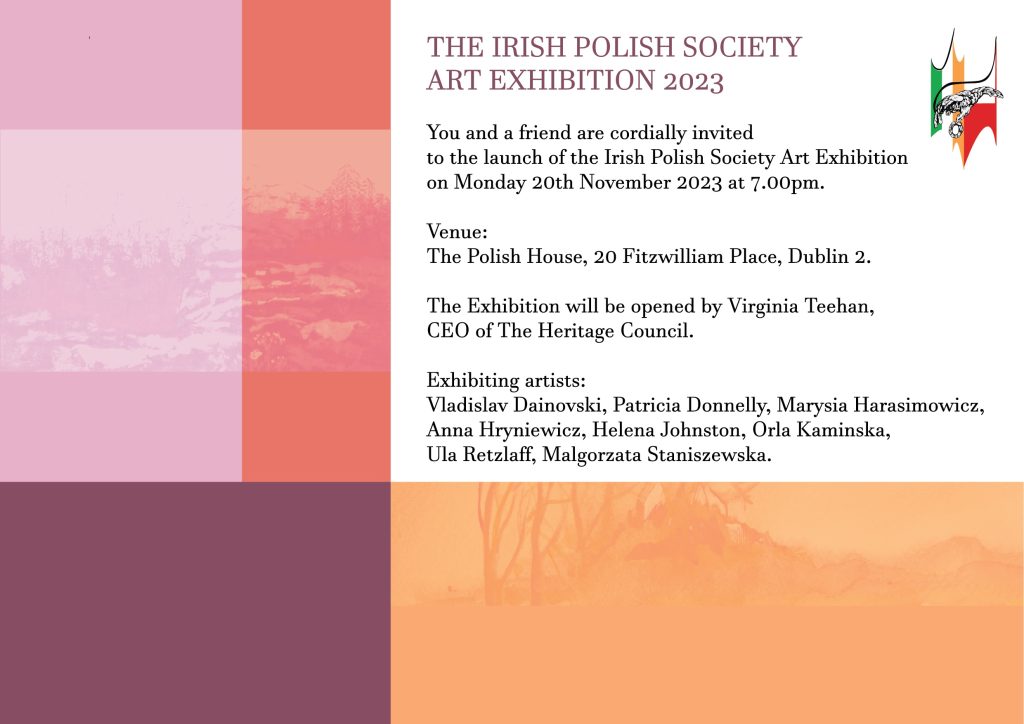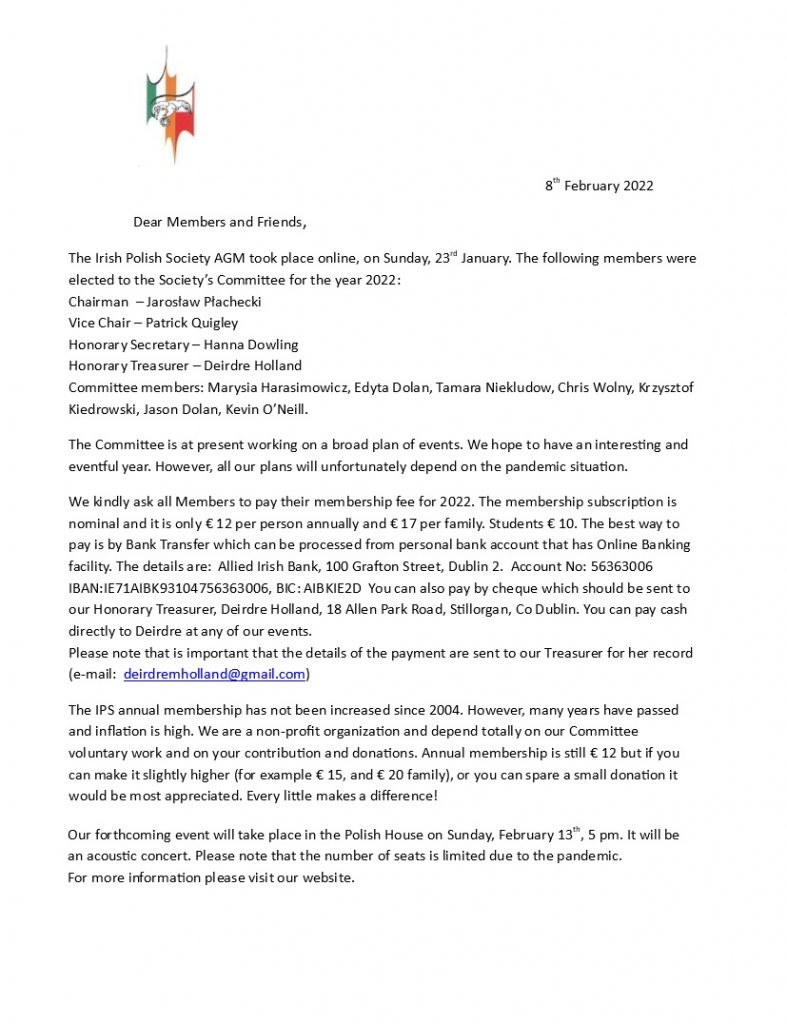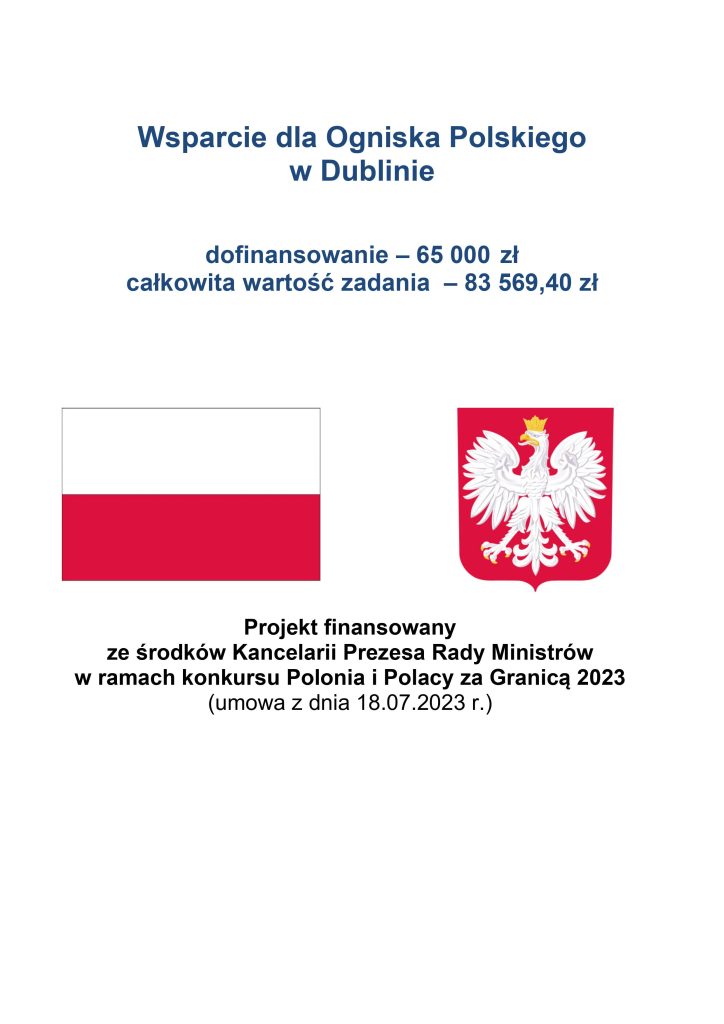CELEBRATING 1000 YEARS OF COMMON HERITAGE BETWEEN POLAND AND IRELAND – CONFERENCE
October 8, 2016 by IPS · Leave a Comment
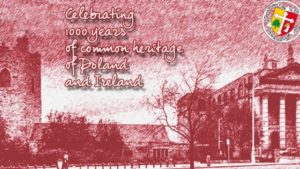 The Polish Chaplaincy in Dublin is organizing a conference to celebrate the 1050th Anniversary of the Conversion of Poland and the 10th Anniversary of the Polish Chaplaincy in Ireland.
The Polish Chaplaincy in Dublin is organizing a conference to celebrate the 1050th Anniversary of the Conversion of Poland and the 10th Anniversary of the Polish Chaplaincy in Ireland.
The tile of the conference is “Celebrating 1000 years of common heritage between Poland and Ireland: Irish and Scottish Monastic foundations and the origins of European and Polish Christianity” and it will take place on 15th October 2016 at the Glendalough Hotel, Co. Wicklow, Ireland
The conference is open to the public and admission is free.
This Unique Conference will center on the influence of Irish monastic communities in the spread of Christianity to Europe and especially Poland. The Conference will bring together leading experts in ecclesiastical history from Ireland, Poland, Denmark and Italy in the beautiful monastic setting of Glendalough, Co. Wicklow, Ireland. Together the participants will explore how a small Island on the most Western edge of Europe has had a cultural impact on a great Nation on Europe’s Eastern border.
Marcus Losack will walk the participants through the development of Glendalough as a monastic settlement. They will look at the origins, development and plot the journey of Irish monks from Glendalough – The City of God – to a wider world. Marcus is an expert on Celtic Christianity and also a leader of Celtic Pilgrimages. He has authored many books including the recent ‘The letters of St. Patrick’ (2016) and the much re published ‘Glendalough; A Celtic Pilgrimage’ (1996 1st ed.), with Fr. Michael Rogers (Columba press, Dublin). He is director of the Ceile De Centre.
The first speaker Monsignor Ciaran O’Carroll will start the conference by introducing the public into the world of Irish missionaries and their journeys across Europe to spread the teachings of the Gospel.
Next the twin concepts of Community and Friendship will be explored , their inter-relationship and how the Irish experience influenced this aspect of monastic development across Christendom. A plenary talk will be given by Prof Brian Patrick McGuire, Roskilde University, Denmark. Prof McGuire has authored the increasingly influential book, Friendship and Community: the Monastic Experience 350-1250. Cornell University Press (2010 2nd ed.)
Prof Jerzy Strzelczyk, Adam Mickiewicz University (UAM), Poland has researched the role of Irish monks in the spread of Christianity across Europe and especially to Poland. Prof Strzelczyk is an expert on the history of early medieval history of Europe and the spread of Christianity and has published over 50 books.
Dr Adam Krawiec will continue the history of Irish monks with focus on their cultural impact on early medieval central Europe. This promises to be an exciting session, uncovering a 1000 years old common heritage between our Poland and Ireland that took roots in Christianity and its moral values.
In conclusion the participants will look at whether and how the Irish influence contributed to the phenomenon that during the period of the most extraordinary spread of Christianity the concept of community did imply friendship, given that it usually is not the case in modern world. They will examine the key factors bearing on the relationship between friendship and community, attitudes towards and beliefs about friendship and the historical context.
Conference sessions will be chaired by Br. Colmán Ó Clabaigh OSB, Glenstall Abbey, Co. Limerick, Ireland; Dr Malgorzata Krasnodebska-Daughton, University College Cork, Ireland and Mgr. Ciaran O’Carroll, Rector of Irish College in Rome, Italy.
More information on other events being part of the millenium celebrations can be found here:
Glendalough Conference
Conference on the Celtic Christian missions in Europe and the beginnings of Christianity in Poland
In connection with the upcoming celebrations on the occasion of the 170th anniversary of dedication of St. Audoen’s Church, and the 10th Anniversary of transfer of that Church to the Polish immigrants, a historic conference on the connections between the Celtic Christian missions in Europe and the beginnings of Christianity in Poland will take place in Glendalough, on 15th October 2016. Five historians specializing in the history of the Middle Ages, two Irish, two Polish and one from Denmark, will present their papers in English. Additionally two moderators will participate in the event.
Conference to Celebrate
The 1050th Anniversary of the Conversion of Poland
and
Common Heritage of Poland and Ireland
Friendship and Community: Irish and Scottish Monastic foundations and the origins of European and Polish Christianity
on
15th October 2016
at the
Glendalough Hotel, Co. Wicklow, Ireland
Organised by the Polish Chaplaincy in Ireland
…. We invite you to join us at this seminal event…
This Unique Conference will centre on the influence of Irish monastic communities in the spread of Christianity to Europe and especially Poland. The Conference will bring together leading experts in ecclesiastical history from Ireland, Poland, Denmark and Italy in the beautiful monastic setting of Glendalough, Co. Wicklow, Ireland. Together we will explore how a small Island on the most Western edge of Europe has had a cultural impact on a great Nation on Europe’s Eastern border. We promise this will be a journey to remember and hopefully revisit in future years.
We will start our journey in Glendalough.
Marcus Losack will walk us through the development of Glendalough as a monastic settlement. We will look at the origins, development and plot the journey of Irish monks from Glendalough – The City of God – to a wider world. Marcus is an expert on Celtic Christianity and also a leader of Celtic Pilgrimages. He has authored many books including the recent ‘The letters of St. Patrick’ (2016) and the much re published ‘Glendalough; A Celtic Pilgrimage’ (1996 1st ed.), with Fr. Michael Rogers (Columba press, Dublin). He is director of the Ceile De Centre.
Our first speaker Monsignor Ciaran O’Carroll will start the conference by introducing us into the world of Irish missionaries and their journeys across Europe to spread the teachings of the Gospel.
Next we will explore the twin concepts of Community and Friendship, their inter-relationship and how the Irish experience influenced this aspect of monastic development across Christendom. A plenary talk will be given by Prof Brian Patrick McGuire, Roskilde University, Denmark. Prof McGuire has authored the increasingly influential book, Friendship and Community: the Monastic Experience 350-1250. Cornell University Press (2010 2nd ed.)
Prof Jerzy Strzelczyk, Adam Mickiewicz University (UAM), Poland has researched the role of Irish monks in the spread of Christianity across Europe and especially to Poland. Prof Strzelczyk is an expert on the history of early medieval history of Europe and the spread of Christianity and has published over 50 books.
Dr Adam Krawiec will continue the history of Irish monks with focus on their cultural impact on early medieval central Europe. This promises to be an exciting session, uncovering a 1000 years old common heritage between our Poland and Ireland that took roots in Christianity and its moral values.
In the conclusion we will look at whether and how the Irish influence contributed to the phenomenon that during the period of the most extraordinary spread of Christianity the concept of community did imply friendship, given that it usually is not the case in modern world. We will examine the key factors bearing on the relationship between friendship and community, attitudes towards and beliefs about friendship and the historical context. We hope to look at how we can learn from the past with a view to enlightening our way forward.
Conference sessions will be chaired by Br. Colmán Ó Clabaigh OSB, Glenstall Abbey, Co. Limerick, Ireland; Dr Malgorzata Krasnodebska-Daughton, University College Cork, Ireland and Mgr. Ciaran O’Carroll, Rector of Irish College in Rome, Italy.
All the discussions will be translated simultaneously by Cathal McCabe, Irish poet and director of The Ireland-Poland Cultural Foundation.
Conference Program
09.00 am – Registration opens.
09.30 am – Tea and Coffee available.
Welcome
10.00 am – Fr Stanislaw Hajkowski SChr, Coordinator of the Polish Chaplains in Ireland, will formally open the conference – marking the celebration of the 1050th anniversary of Baptism of Poland and the 10th anniversary of the establishment of the Polish Chaplaincy in Ireland.
10.10 am – Introduction; Marcus Losack
“An Introduction to Glendalough, it origins, brief history, sketch to its abandonment to Dublin”
10.30 am – Morning coffee
Session 1 – Migration of Irish missionaries and the dynamics within the monastic communities
10.45 am – Chair: Br. Colmán Ó Clabaigh OSB, Glenstal Abbey
11.00 – 11.20 am – Speaker 1; Mgr. Ciaran O’Carroll, Rector of Irish College Rome, Italy.
“The movement of Irish Missionary Monks across the Europe Continent”
11.20 – 12.00 am – Speaker 2; Prof Bryan Patrick McGuire, Roskilde University, Denmark.
“Friendship and the Internal Dynamics of Celtic Monastic Communities. The triumph of Friendship and its importance in the missionary endeavour to Europe”
12 – 12.30 pm – Discussion
12.30 – 13.30 pm – Lunch Break
Guided tour of Glendalough monastic site is available during lunch break
Session 2 – The impact of Irish Missionaries on the development of Christianity in Poland and its culture in the following centuries
13.30 – 13.40 pm – Moderator; Dr Malgorzata Krasnodebska-Daughton, Department of History, University College Cork.
“Introduction and a brief presentation on the Irish influences on Polish manuscripts (c950-1250) housed at the University of Krakow”
13.40 – 14.15 pm – Speaker 3; Jerzy Strzelczyk, Prof Emeritus UAM Poznan, Poland.
“Celtic Missions in Central Europe with focus on Poland”
14.20 – 14.55 pm – Speaker 4; Dr hab. Prof Adam Krawiec, UAM Poznan, Poland.
“Irish Cultural Impact on Early Medieval Central Europe”
15.00 pm – Afternoon Tea
15.30 pm – Chair; Mgr. O’Carroll, Rector of Irish College Rome, Italy.
“The relationship between Community and Friendship; Can you have one without the other?”
General Discussion and Close of Conference.
Our speakers:
1. Marcus Losack
Marcus Losack graduated in Theology from Christ’s College, Cambridge (M.A.) and Irish School of Ecumenics, Trinity College, Dublin (M.Th.) and is an expert on Celtic Christianity. He served in C. E. parishes in Ireland and the UK and North Africa before his appointment as Senior Lecture and Course Director at St. George’s College, Jerusalem (1989-1992) where he arranged visits to the ancient desert monasteries of Egypt and Sinai and historic sites in the Holy Land. He is author of many books including the recent ‘The letters of St. Patrick’ (2016) and with Fr. Michael Rogers the much re-published ‘Glendalough; A Celtic Pilgrimage’ (1996 1st ed), Columba Press, Dublin. He leads pilgrimages in Celtic Spirituality and is director of the Ceile De Centre, near Glendalough.
2. Br. Colmán Ó Clabaigh OSB
Colmán Ó Clabaigh is a monk of Glenstal Abbey, Co. Limerick and a medievalist specialising in the history of monasticism and religion in late medieval Ireland. His book ‘The Friars in Ireland 1224–1540’ (Dublin, 2012) was awarded the Prize for Irish Historical Research by the National University of Ireland.
3. Very Rev. Monsignor Ciaran O’Carroll
Monsignor O’Carroll is Rector of the Irish College in Rome He is a graduate of University College Dublin, the Angelicum University, Rome and the Gregorian University, Rome. He has a doctorate in Ecclesiastical History and has lectured in Ecclesiastical History at a number of third level institutions including St. Patricks College, Maynooth.
4. Prof Brian Patrick McGuire
Prof Brian Patrick McGuire, B.A. University of California at Berkeley 1968. D.Phil. Balliol College, Oxford, 1971. Adjunct, later lector at University of Copenhagen, Institute for Greek and Latin Medieval Philology from 1975. Professor of medieval history, Roskilde University 1997-2012.
Books include: ‘The Cistercians in Denmark‘ (Cistercian Publications, 1982), ‘Friendship and Community‘ (1988, reprinted 2010); ‘Jean Gerson and the Last Medieval Reformation‘ (Pennsylvania State University Press, 2010). A number of studies in Danish on Denmark’s Christianization, Prayer, The New Spirituality, The First European (Bernard of Clairvaux), The Birth of Christian Europe (Boniface).
5. Dr Małgorzata Krasnodębska-D’Aughton
Dr Małgorzata Krasnodebska-D’Aughton lectures in Medieval History at University College Cork. Her research interests include the cultural and religious history of the Medieval Ages, the cultural history of the Franciscan Order in Ireland, Franciscan iconography and mendicant pilgrimage texts. Her professional experience has involved the work on ‘The Franciscan Faith’ and ‘Medieval Ireland’ exhibitions, both at the National Museum of Ireland as well as the communication of medieval history through the medium of theatre.
6. Professor emeritus of humanities Jerzy Strzelczyk
Prof Jerzy Strzelczyk is a medievalist historian who specializes, among others, in the beginning of the Polish state and the barbarian countries on lands of the former Roman Empire. In the years 1991-1996 he was director of the Institute of History of AMU. Head of the Department of Medieval History of the Institute of History of the University. Adam Mickiewicz University in Poznan, an active member of the national Department of History and Philosophy II PAU. Member of the Central Commission for Academic Degrees and Titles. Member of the Foundation Board of the Historical them. Professor Henryk Łomiańskiego. Honored FNP for 2009 in the category of humanities and social sciences. Senate resolution Academy. Academy in Czestochowa, from May 2012, he was awarded the title of doctor honoris causa AJD. He is an author of over 50 books on a number of historical subjects focused around early medieval history of Europe.
7. Dr hab. Adam Krawiec
Dr hab. Adam Krawiec, Associate Professor in the Departament of Medieval History, AMU, Poznań, medieval historian. His current research interest include history of geography and cartography in the Middle Ages, early history of the Polish Piast state and other medieval Slavonic peoples, cultural history of medieval Poland and Europe, especially of the perceptions of the wondrous.
Books and papers include: ‘Curiosity of the World in Medieval Poland‘(Poznań 2010); ‘A global Picture of a non-global World. Picture of the World in the Universal Cartography in the Middle Ages and the Renaissance‘(Culture – History – Globalisation, 2009), pp. 1-12; ‘Jerusalem as the Middle of the World in the Medieval Imaginative Geography‘(Studia Periegetica, 2010), pp. 85-115; ‘Foreign Men, Foreign Women. The Perception of Oneself and Others in the Travel Narrative of Nicholas of Popplau‘, (Biuletyn Polskiej Misji Historycznej, 2013), pp. 255-280.
Abstract of plenary talk by Prof Brian Patrick McGuire:
Friendship and Community: The Celtic and Cistercian Contribution to the Christianization of Europe
Friendship as such is not highly regarded in the Gospel, for Christ makes it clear that we have to choose between him and friendship with the world. Saint Paul followed the inspiration of Christ and made it clear that there could be no compromise. Thus the first Christian centuries did not have a high regard for friendship. Even Augustine, who could not be without his friends, disparaged the central friendship of his youth. Initially it might seem as if the Irish-Celtic figures who made monastic foundations and went to the Continent to spread Christianity similarly had little time for friendship. But if we read their biographies carefully, these men came to realize that their institutions had to be based on mutual affective bonds. The soul-friend became the prototype of the Celtic form of friendship, which spread to the Continent also with the Anglo-Saxon missionaries, men such as Wynfrith-Boniface (d. 754), who was among the first to use the term amicitia spiritalis, spiritual friendship.
If we move from the Early Middle Ages to the twelfth century, we find how Cistercian monks inherited the Celtic-Irish tradition of friendship and community. Stephen Harding, the real founder of the Cistercian Order, insisted on making a Carta caritatis, a constitution of charity, so that monasteries were bound to each other not by 15 administrative or financial ties but by affective ones. The institutional bonds parallel those of the individual monks, who believed they could seek each other out as the guardians of each other’s souls. For the Cistercians there was no conflict between individual and institution, and the spread of Cistercian monasticism all over Europe, including Ireland, contributed to the process of Christianisation by which monks provided inspiration and spiritual examples to their surroundings.
For any further information on the conference or the speakers please do not hesitate to contact Fr Stanislaw Hajkowski SChr on (+353) 0872393235 or office@staudoen.org or Andrew Trala on (+353) 0873218721

